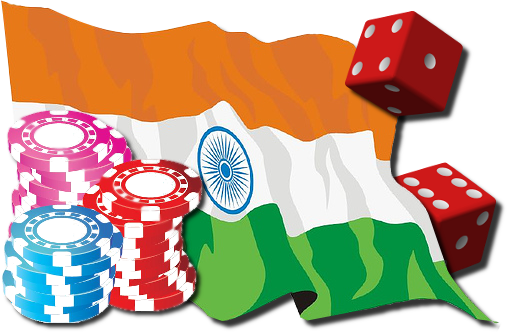All winnings from online gambling are fully taxable by a mounted rate of 31.2% of the net earnings.
Conclusion on Online Gambling Laws in India. As you can see there are too many holes in the governmental India betting laws. With a growing middle class, a huge population, and surrounding casino giants looking to make a stand in India it is only a matter of time before online licenses are given out to betting firms offshore to fully allow. India, on the other hand, is still playing with their laws. According to the Public Gambling Act, 1867, a law even older than Mahatma Gandhi still rules, owning the operations of any gambling house, entering a gambling place, or having a gambling device is prohibited. It does have an exception, though. To be more specific, there are two games in sports betting. Most of the India is subject to the Public Gambling Act of 1867 and the Technology Act of 2000. Under those laws, sports betting is not permitted but individual states have right to make their own laws. According to Public Gambling Act (1867),all kinds of gambling in India are illegal.

In the past decade, the popularity of online gambling has increased multifold in India. As the access to the internet grew and new casinos launched in the country, people have been going gaga over the enthralling gaming experience these websites offer. Although gambling laws are pretty vague in the country, there are certain aspects of such virtual gambling platforms are regulated strictly. One of such elements is Tax laws associated with the winnings through online gambling.
India does not have any modernized laws for online gambling. The rules still in place are particularly for brick and mortar casinos imposed by the British in 1867. However, according to the Income Tax Department of India, online gambling has specific laws when it comes to taxation.
Let’s delve into the details regarding Tax Laws for Online Gambling in India.
History of Gambling Laws in India
Back in the days, Indians had complete freedom of gambling. So much so that gambling is mentioned in Indian mythology. There used to be no rules to regulate or prohibit gambling in India. However, like most aspects of life changed amid the British rule, gambling too was impacted. In the year 1867, the British government enacted ‘The Public Gambling Act of 1867’. This came to be the first and only gambling law prohibiting the practice in the entire subcontinent.

In the present day, almost 200 years later, there have only been a few amendments in the colonial law. The old rule is still in practice across the country except for a few states that have enacted their own gambling regulations.
Online gambling undoubtedly requires well-defined protocols to ensure the safety of the players from fraudulence and addiction, but no decision has been made in this regard. This primarily leaves the legalities of online gambling on the fence, and the decision lies in the hands of each state to clearly state its position in legal matters.
Most states have no rules in place to regulate gambling. Yet states like Maharashtra have an explicit ban on both online as well as offline gambling throughout the state. Similarly, Goa, Sikkim, and Daman have legalized all forms of gambling. You can easily find brick and mortar casinos in these states as well as online casino sites.
Taxation on Gambling Winnings in India
In India, the winnings from gambling platforms are fully taxable and mandatory for every player to pay. This law comes under Section 115BB of the Income Tax Act under the head ‘Income From Other Sources’. This law brings any income from online or offline gambling, lottery and card games under the purview of this Act.
Based on this law, the player needs to pay a mounted rate of 31.2% of the net earnings. The division of this amount is a flat 30% tax rate plus cess. There are zero exemptions of the basic limit for the profits based on the amount won or the games. Regardless of which game you play on a gambling website, or how much you win, the tax needs to be paid.

The other provision related to this realm of online gaming falls under Section 194B of the Income Tax Act. According to this, tax Deducted at Source or TDS is applicable for all winnings through online gambling exceeding the amount of Rs. 10,000. This means that the source company (gambling website) must deduct tax before the final remittance to the player.
The income through online gambling platforms has no availability of returns to be claimed in the tax returns.
Reporting TDS Deducted Earnings

Cricket Betting Laws In India
As aforementioned, any income above Rs. 10,000 through online gambling is subject to TDS. As the player, it is your responsibility to disclose the details of TDS deductions in the amount received while filing your income tax returns. This is mandatory even after you provide all the necessary information and documents such as PAN, bank account details, and address to the online casino.
Apart from real cash prizes, online casinos sometimes provide other rewards. This is usually the case with VIP or loyal players. Such rewards are mostly extra benefits or promotional to keep players engaged and devoted to the casino. These benefits are taxable as well. Standard rewards or benefits include gift hampers, flight tickets, sponsored vacations, birthday gifts and similar.
If you receive the reward in kind (any non-cash exchange), the market value of the reward should be disclosed. In such cases, the casino company is responsible for deducting the TDS from the premium based on its value.
Betting And Gambling Laws In India
Real money rewards, as well as added benefits in kind, have been one of the main factors attracting players to online gambling. It is always the best practice to be mindful while gambling and being a responsible taxpayer. Do not forget to include each of your gambling rewards while filing your tax returns and disclose all the necessary details as required to avoid any legal repercussions in the future.